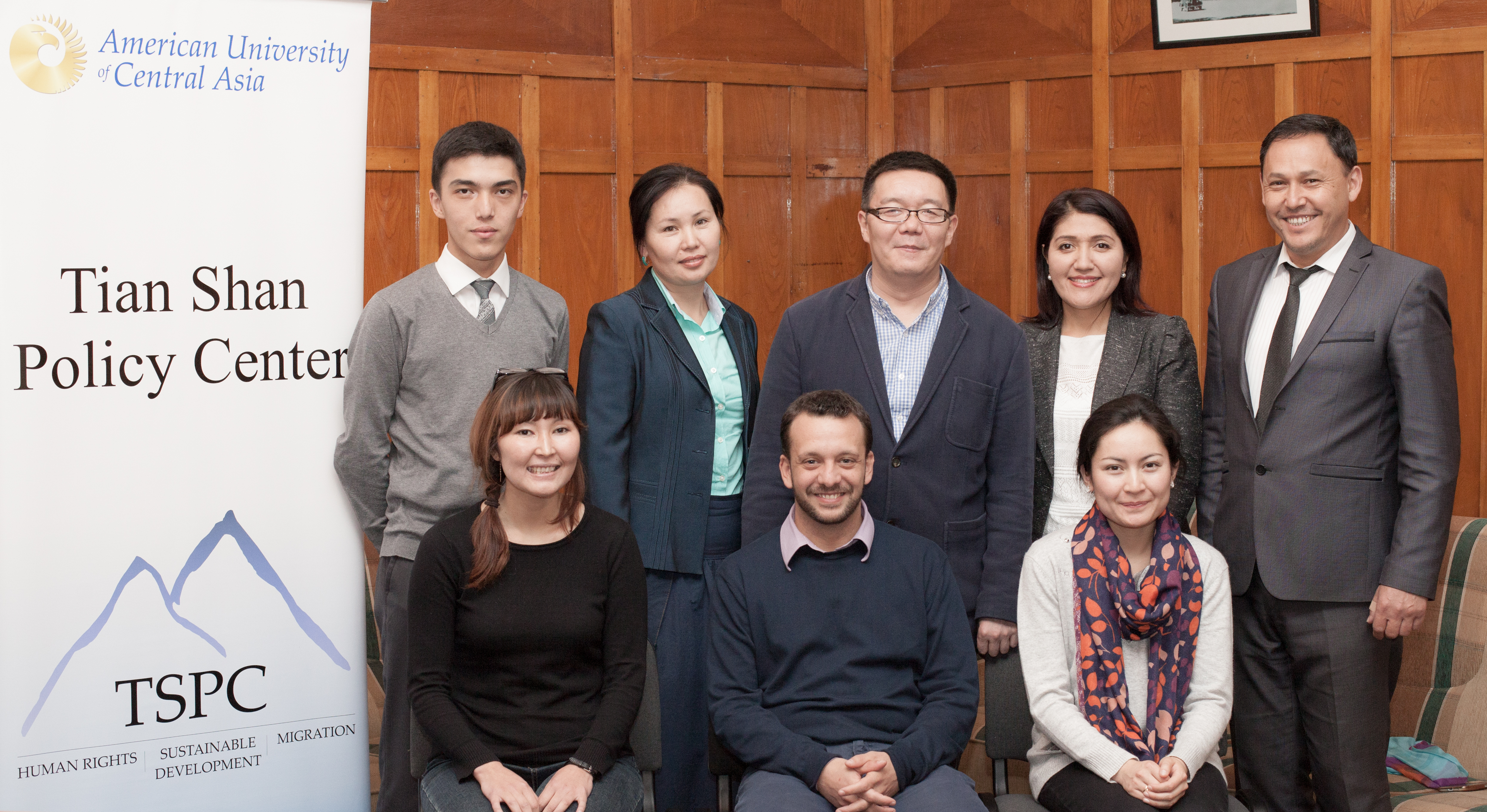Tian Shan Policy Center: Analysis with Impact
October 17, 2014

The mission of the American University of Central Asia is to develop enlightened leaders, to promote critical inquiry and investigating learning, and to work towards the democratic development of the region. However it does not simply educate future leaders and reformers internally, it also is interested in supporting those ideals through the Tian Shan Policy Center.
The Tian Shan Policy Center (TSPC) at AUCA is a think tank devoted to the betterment of Kyrgyzstan and the broader Central Asia. With a focus on three different aspects of society: human rights, sustainable development, and migration; the TSPC strives to cover the most pressing of issues and to advocate for change, both in the halls of government and in civil society.
One of the TSPC’s main focuses is their project on the prevention of torture under the Human Rights program. We talked to Daniele Rumolo, Human Rights Program Manager for the TSPC, about the project, the state of human rights in Kyrgyzstan, and his idea for incorporating the student body more directly into the work of the TSPC.
Symbiotic would be an apt descriptor for the relationship between TSPC and AUCA; “AUCA has an important name in Kyrgyzstan, so the quality of the work we output is recognized and respected. The work that we can do here as a think tank can really have an impact on legislation and policies from the government,” Daniele emphasized. And the issues that the TSPC is involved in require multi-faceted cooperation. The TSPC works not only with AUCA, but also with numerous local and international NGOs to combat problems present in Kyrgyz society. And one of the most prominent of these problems has to do with abuses in the criminal justice system.
Even the General Prosecutor’s office has admitted that there are problems within the justice system, regarding abuses of suspects. This is an uncommon frankness. Daniele, having previously worked in the field before, told us of his shock when he heard this, “[in other countries] people were tortured, even in front of me. Police were looking at me and saying, ‘oh we don’t torture people here.’ Here in Kyrgyzstan, they admit there is a problem and want to change.” The causes don’t seem to be information gathering, but rather a mix: lack of oversight, corruption, and an ethnic component.
But that desire to reform from the government seems to be sincere. This past September, a workshop was held in Issyk-Kul on preventative measures regarding torture. A major issue is the lack of oversight on police actions, currently it is police investigating police, a “peer review” that Daniele intimated doesn’t quite pass muster. But at the workshop, with attendance by officials from the Prosecutor’s office, Ministry of Interior, and Ministry of Justice, a legal framework was established for independent investigative mechanisms. Daniele told us he was “amazed” at the development, but it was not the only win for the TSPC.

Migrants' issues are a focus of TSPC
In spring of this year, a policy recommendation paper was finalized for implementation. It concerned especially the lack of definition of the exact instant of detention. One recommendation of the TSPC was to make the moment “uniform” and to have “judicial guarantees starting immediately upon deprivation of liberty,” as precisely explained by Daniele, a human rights lawyer by training. The policy recommendations outlined are currently in the draft of a bill, which will be adopted by the government at some point. One of the proposed ideas is to work with lawyers more closely, especially with the bar association. While a lawyer advocating for increased importance and salaries of lawyers in Kyrgyzstan might seem dubious, Daniele asserted it was a “proven fact.” “If I can get my client out of jail because his arrest is not confirmed after 48 hours…the judiciary will work things out to get everything done in 48 hours. We need more lawyers,” he stressed. And while there have been certifiable, on-the-ground results of TSPC’s work, Daniele has an idea about a way to not only increase its efficacy, but the standing of AUCA as well.
As the biggest and most respected universities in the United States and Europe often publish a monthly policy magazine or journal, Daniele believes that TPSC should follow suit. “The goal is to give a platform to AUCA students and professors to be published, to raise advocacy, discuss policy issues, and create a space for open discussion,” he explained. When pressed for an example, he spoke on the issue of the Customs union, “it will be a big talking point. The sociology department can talk about the sociological aspects, ICP can write from the view of food security via human rights, Economics department about market effects…and [the magazine will] include articles from students, organizations, staff.” It is an ambitious project, but one that Daniele believes will have a multitude of benefits for all involved, “All of this can help us so much in raising the name of TSPC and AUCA, and will take us to a different level…we can have more credibility in implementing policy change and reform.”
And that added credibility and leverage might be needed in the future. In addition to the problems already faced by Kyrgyz society today, a bill modeled after the Russian “Foreign Agents” law is being pushed in parliament. This is all only a fraction of the work of the Tian Shan Policy Center. With projects including protection of migrants’ rights and the impact of climate change on food security, the work being done can’t be contained in an article. To find out more about the work of the Tian Shan Policy Center, please contact tspc@auca.kg.
